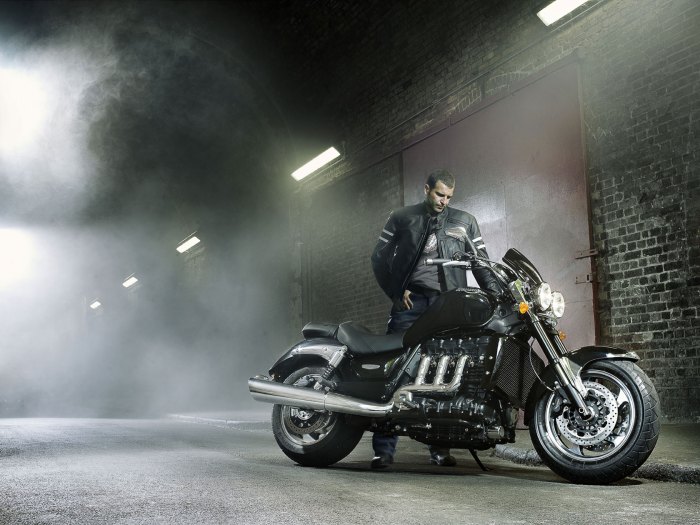Choosing between a car and a motorcycle is a significant decision, influenced by individual needs, lifestyle, and financial considerations. In 2025, with evolving technology and shifting societal priorities, this choice becomes even more nuanced. This detailed comparison explores the advantages and disadvantages of each, helping you determine which option best suits your circumstances.
Factors to Consider: Cost, Practicality, and Safety
Before diving into the specifics of cars and motorcycles, let’s establish some key factors influencing the decision-making process. These include the initial purchase price, running costs (fuel, insurance, maintenance), practicality (carrying capacity, weather protection), and, crucially, safety.
Cost Analysis: Initial Investment and Ongoing Expenses
The initial cost of a car significantly outweighs that of a motorcycle. However, the ongoing expenses tell a different story. Motorcycle insurance premiums are generally lower than car insurance, and fuel consumption is dramatically less. Maintenance costs can vary, but motorcycles often require less frequent and less expensive servicing than cars. However, the cost of repairs for a motorcycle accident can be substantial.* Cars: Higher initial purchase price, higher insurance premiums, higher fuel consumption, higher maintenance costs.
Motorcycles
Lower initial purchase price, lower insurance premiums, lower fuel consumption, potentially lower maintenance costs.
Practicality and Utility: Space, Weather, and Convenience
Cars offer unparalleled practicality. They provide ample space for passengers, luggage, and groceries, offering protection from the elements. Motorcycles, on the other hand, are limited in carrying capacity and offer minimal protection from rain, wind, and cold temperatures. Parking is often easier with a motorcycle, but the lack of storage space can be a significant drawback for daily commutes or longer journeys.* Cars: High carrying capacity, weather protection, comfortable for longer journeys, convenient for carrying passengers and cargo.
Motorcycles
Limited carrying capacity, vulnerable to weather conditions, less comfortable for long distances, suitable for solo travel primarily.
Safety Considerations: Risk Assessment and Mitigation
Motorcycle riding is inherently more dangerous than driving a car. The lack of protective enclosure significantly increases the risk of injury in an accident. While advancements in motorcycle safety technology, such as ABS (Anti-lock Braking System) and traction control, have improved safety, the risk remains considerably higher. Cars, while not entirely risk-free, offer significantly greater protection in collisions.* Cars: Higher level of safety due to protective structure, safety features like airbags and seatbelts.
Motorcycles
Higher risk of injury in accidents, reliance on rider skill and protective gear. Advancements in safety technology are improving safety, but risks remain significantly higher.
Cars in 2025: Technological Advancements and Trends
The automotive industry is undergoing a rapid transformation. 2025 sees the proliferation of electric vehicles (EVs), autonomous driving features, and advanced driver-assistance systems (ADAS).
Electric Vehicles (EVs) and their Impact
EVs are becoming increasingly mainstream, offering lower running costs and reduced environmental impact. The expanding charging infrastructure and decreasing battery prices are driving their adoption. However, range anxiety and charging times remain concerns for some potential buyers.
Autonomous Driving and Advanced Driver-Assistance Systems (ADAS)
ADAS features, such as adaptive cruise control, lane keeping assist, and automatic emergency braking, are becoming standard in many new cars, enhancing safety and convenience. The development of autonomous driving technology is progressing, although fully autonomous vehicles are not yet widespread.
Motorcycles in 2025: Evolution and Niche Appeal
The motorcycle market is also evolving, with technological advancements focusing on safety, performance, and rider experience.
Smart Motorcycle Technology and Safety Features
Modern motorcycles incorporate advanced safety features like ABS, traction control, and even rider assistance systems similar to those found in cars. Connectivity features, allowing smartphone integration and navigation, are becoming increasingly common.
Electric Motorcycles and the Rise of Sustainability
Electric motorcycles are gaining popularity, offering similar advantages to their car counterparts – reduced running costs and environmental friendliness. However, range and charging infrastructure remain considerations.

Source: tsc.edu
The Verdict: Which is Right for You in 2025?
The “better” choice between a car and a motorcycle in 2025 depends entirely on individual circumstances and priorities.* Choose a car if: You need ample space for passengers and cargo, require weather protection, prioritize safety, and have a higher budget.
Choose a motorcycle if
You prioritize affordability, enjoy the thrill of riding, value maneuverability and parking ease, and are comfortable with the higher inherent risk.
Frequently Asked Questions (FAQ)
* Q: Are electric cars more expensive than gasoline cars? A: Generally, yes, the initial purchase price of an electric car is higher than a comparable gasoline-powered car. However, running costs (electricity vs. gasoline) are typically lower.* Q: How safe are motorcycles compared to cars? A: Motorcycles are statistically significantly less safe than cars due to the lack of protective structure.* Q: What are the maintenance costs like for motorcycles? A: Motorcycle maintenance costs can be lower than cars, but major repairs can be expensive.* Q: What is the range of an electric motorcycle? A: The range varies depending on the model and battery size, but it is generally lower than the range of an electric car.* Q: Are electric motorcycles practical for daily commuting? A: This depends on your commute distance and the availability of charging infrastructure.
Shorter commutes are more feasible.
Sources
* [Insert link to a reputable source on car safety statistics]
- [Insert link to a reputable source on motorcycle safety statistics]
- [Insert link to a reputable source on electric vehicle costs]
- [Insert link to a reputable source on electric motorcycle technology]
Call to Action
Carefully consider your individual needs and priorities before making a decision. Research different models of cars and motorcycles to find the best fit for your lifestyle and budget. Happy driving (or riding)!
Expert Answers
What about the safety differences between cars and motorcycles in 2025?
Cars generally offer superior safety features and protection in accidents compared to motorcycles. However, advancements in motorcycle safety technology are constantly improving.

Source: onehellofaride.com
How do parking and storage differ?
Motorcycles require significantly less parking space than cars, a considerable advantage in urban areas. Storage solutions for motorcycles also tend to be more compact.
What are the long-term maintenance costs?
Both cars and motorcycles require regular maintenance, but the specific costs and frequency can vary greatly depending on the make, model, and usage.
Which is better for long-distance travel?
Cars are generally more comfortable and practical for long-distance travel, offering better weather protection and carrying capacity. However, well-equipped touring motorcycles can also be suitable for long journeys.
